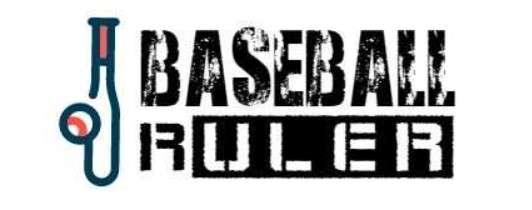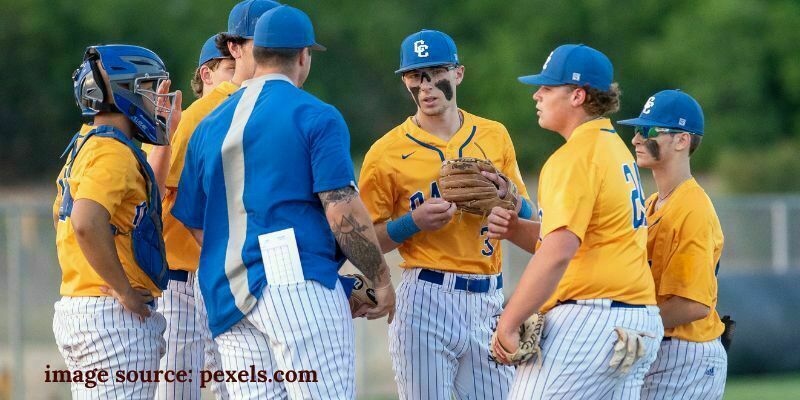Why are baseball coaches called managers? If you attend baseball games frequently, it is common to hear players calling their coaches managers. This can be very confusing because the work of a manager is very different from that of a coach.
Both assist the players to improve their game for the benefit of the team. However, each one of them has a different role to play. In this article, we have covered a detailed analysis of baseball coach vs manager.
What is the difference between a baseball coach and a manager?
Baseball managers and coaches have different responsibilities, which we have explained below.
What’s the difference between a baseball coach and a manager?
Who is a baseball coach?
The main work of a manager is to oversee the overall improvement of the team. However, a coach works with every player to ensure that they improve in their game.
They analyze the aspects of each player to see the exact areas they need to improve. Therefore, a coach is very important even to those players who are competing at the highest levels. There are different types of baseball coaches, and they include:
- Bench coach
The bench coach is the next-senior person from the manager. Bench coaches are the in-game advisors to the manager. They offer situational ideas back and forth to the manager to help him make decisions in the course of the game.
In case the manager is unable to attend the game, they assume the role of the manager. Again, if the manager is sacked or if he has resigned, the bench coach becomes the manager.
- Pitching coach
The work of a pitching coach is to offer guidance to the manager about pitchers and their arms. He acts as the in-game coach for pitchers who are on the mound.
Anytime a manager visits the mound, you should expect him to make a change in the pitching. Pitching coaches are usually former pitchers.
- Bullpen coach
A bullpen coach has similar duties as a pitching coach except he works with relief pitchers in the bullpen. Unlike the pitching coach, the bullpen coach doesn’t visit the mound.
Offensive coaches
- Hitting coach
As the name suggests, a hitting coach helps the players improve their hitting skills and form. He analyses how each player swings in the course of the game and throughout the season.
Through these analyses, he is able to advise them on the adjustments they need to make between batting sessions.
He also monitors their performance during cage sessions, pre-game batting practice, and during the off-season. Nowadays, hitting coaches use video analysis to study the hitting performance of their players as well as the opposing pitchers.
- Base coach
When the players are at-bat, there must be two on-field coaches. These coaches are positioned around the boxes near the 1st and the 3rd base, so that’s why they are referred to as base coaches.
They help prevent pickoffs by directing the base runners. Apart from that, they communicate the information sent by the manager from the dugout to the batters or runners.
Why are baseball managers called skippers?
Before the start of every game, the baseball manager picks the starting pitcher and batting order. He knows when to do the substitutions and also when to use a relief player. This is why baseball managers are also known as skippers.
What does a manager in baseball do?
Baseball managers are among the senior-most people in a team, meaning that they have more responsibilities. Their duties include:
- Creation of lineups
One of the major responsibilities of baseball managers is coming up with an effective lineup. The manager has to decide the batting order, including the position of players defensively. For this, the manager must have details of every player’s health and the overall morale of the team.
It is also important for the manager to understand the strengths of the opposing team when coming up with the lineup. This will help him organize a team of players who are likely to win the game. The manager should also be able to motivate players individually to boost their morale.
- Game substitutions
Baseball managers are supposed to make the final decision regarding player substitutions. This may include pinch hitters, pitching adjustments, defensive changes, and pinch runners.
- Clubhouse policy-making
A manager is also in charge of clubhouse administration. This means that he has a duty of implementing all the clubhouse policies to achieve the set goals.
- In-game strategy
Other than in-game substitution and creating lineups, baseball managers can delegate various duties. They do this mostly with experienced members of the coaching staff such as the bench coach. However, the manager has the final say on the overall strategy of the game.
This means that he can change tactics in the course of the game. He can also overrule other members of the coaching staff. Again, the decisions are based according to the skills of the team. Through in-game strategy, the manager can leave a lasting impression on the team.
- Answering questions from the press
The manager is the overall spokesperson for the team. He is the one who answers questions from the press during pre-match and post-match conferences.
Therefore, the manager should have excellent communication skills and the ability to deal with hard questions to create a good overall image of the team. The manager may also use the press to motivate the players to win the game.
Why do baseball managers wear uniforms?
Unlike other games such as football, in baseball, the managers wear uniforms, which may seem strange. Few people understand why managers wear uniforms.
Previously, baseball managers were themselves players and were used to wearing uniforms. This tradition of managers wearing uniforms has been maintained up to the present.
Can a player be a manager at the same time?
A player-manager is a member of the team who plays both roles of a player and a manager. In baseball, it is not easy to find a player who is also a manager because the assignment of a manager to supervise the whole team is a large responsibility.
He is also in charge of selecting lineups and making changes in the course of the game and is very focused.
In the past, it was very common to find players who were also managers. Most teams preferred this because they didn’t need to hire different people for these roles. Distinguished players were also promoted to be player-managers as a way of boosting game attendance.
Conclusion
why are baseball managers not called coaches? I hope that you have learned the difference between these two individuals. The manager is in charge of the whole team, meaning that he carries the image of the team.
In most cases, he delegates some of his duties to the bench coach or other members of the staff. This makes it easier for him to manage other duties in the course of the game.
On the other hand, coaches work with individual players to help them improve their game. Different types of coaches are in charge of different groups of players.
Frequently Asked Questions
Why are baseball managers not called coaches?
Baseball managers and coaches are not the same things, meaning that it is not okay to refer to managers as coaches. The manager is in charge of the whole team while coaches help individual players to improve their tactics.
Who is higher a manager or coach?
A manager has more responsibilities than a coach since he is in charge of the whole team. The coach works with the individual players to assist them in how they can improve their game.
Who is the best baseball coach of all time?
Connie Mack is the most successful baseball coach of all time. He won 3,731 games, more than either John McGraw or Tony La Russa. The other two coaches won 2,763 and 2,728 games, respectively.
Why baseball managers wear the same uniforms as their players.
Some decades back, there were player-managers who used to play both roles. They used to wear uniforms whether they were playing or not and managers wearing uniforms became one of the baseball traditions that exist even today.

